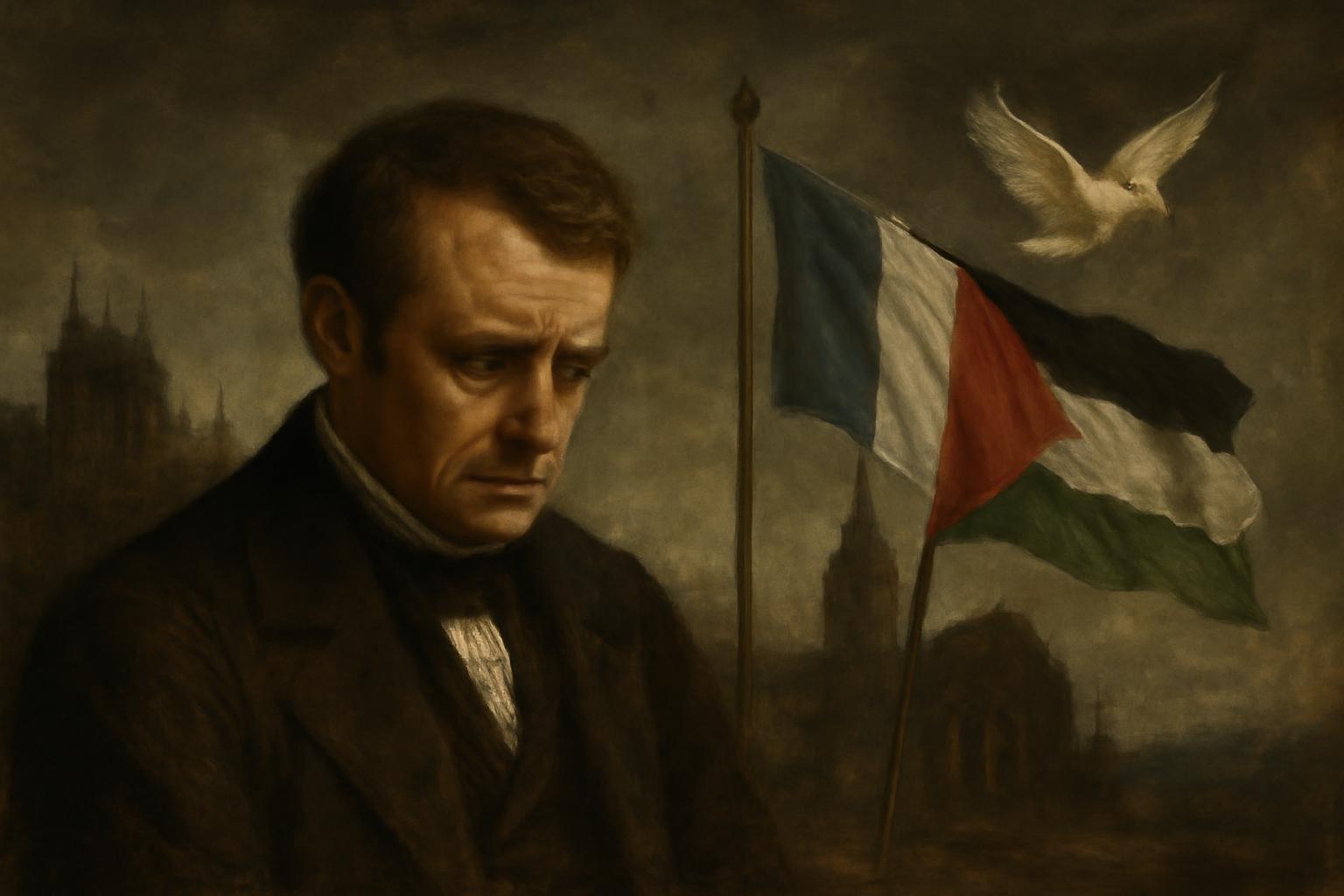Once more upon the blasted fields of history, France, now but a pale moon in the wan heavens of European civilization, extends her hand to the mirage of Palestine—a gesture heavy with the melancholy of symbol, yet all but weightless in the scales of tragic reality. President Emmanuel Macron, clutching the tattered banner of Western diplomacy, proposes to recognize an ideal: the existence, at least in name and hope, of a Palestinian state upon the world’s official parchment come September, beneath the dubious gaze of the United Nations.
Yet what is this recognition, other than a melancholic salve applied upon wounds too deep for healing? The Palestinians, who have learned all too well the bitterness of waiting for deliverance, greet it with exhausted gratitude, while Israel, perpetually armed against the phantoms of its own fear, and the United States, hollowed out by the inertia of empire, roar their predictable disapproval. Germany, itself caught between memories of abysmal guilt and a present emptied of certainties, hedges and observes. None inquire, with true philosophical substance, after the existential boundaries of this putative Poland of the Middle East: where is Palestine, truly, and what is it—other than an Idea, a dream more tattered than the Treaty of Versailles?
Experts, those clerks of global bureaucracy, note the dismal ground: a Palestine carved into pieces, its people stranded on the stage of history like Orestes before the Furies, awaiting judgment that never comes. Gaza burns—strangled by siege, reduced to rubble and dust; the West Bank, riddled with settlements like a tragic hero afflicted by hubris, decays beneath the tread of foreign boots. Jerusalem, that city of myth and martyrdom, remains a prize for conquerors, not a hearth for citizens. Is this the site upon which a state may arise, or are we only watching, once more, the eternal return of Sisyphus’s stone, ever rolled upward in vain?
The French, desperate for relevance, offer this gesture against the inexorable march of Israeli expansion—as if the course of ‘greater Israel,’ that biblical specter conjured from national myth, could be checked by yet one more Western pronouncement. How Nietzsche would scoff at this: the “last men” of Western politics, blinking tiredly in the twilight, imagine themselves architects of destiny while history grinds forward, indifferent and merciless. Macron invokes trust, clarity, and commitment—a veritable trinity of abstraction—but his epistle to Abbas must ring hollow against the ruins of Gaza, drowned out by the squall of bombs and the laughter of fate.
Doubts gather, thick as the dusk before an Aeschylean chorus. Can a proclamation conjure into being what generations of violence and betrayal have rendered almost impossible? The real—the actual—demands blood and toil and sacrifice, not merely ceremony and applause in parliamentary halls. As settlements multiply and the Palestinian dream withers beneath checkpoints and barricades, Macron’s gesture is revealed as another act in a theater of the absurd: high on pathos, low on catharsis, bereft of true tragic transformation.
Here, the West’s decline becomes almost sublime in its inevitability: once masters of Reason and the Tragic, we are reduced to applauding shadows on the wall, calling phantoms by the names of states, and mistaking eloquence for agency. In another age, such gestures might have inaugurated empires or ended wars. Now, they flutter down into the abyss, another note in the elegy of European impotence, another mask in the farce of international law. As we peer, like Hamlet among tombstones, into the gathering night, we find not hope but merely the deep, persistent echo of nihilism—the silence answered only by the hollow call, “Palestine,” as if the utterance alone might suffice to conjure flesh from memory, justice from farce, or order from chaos.
